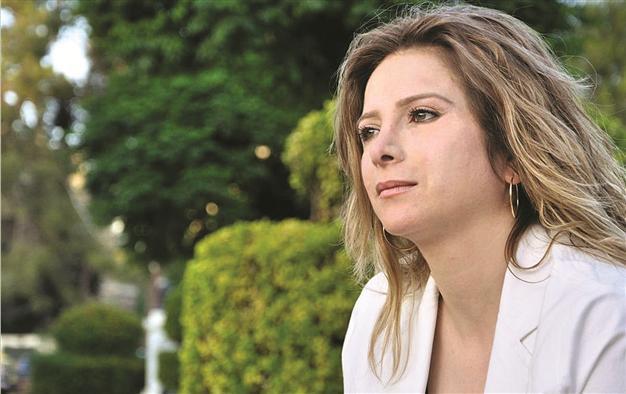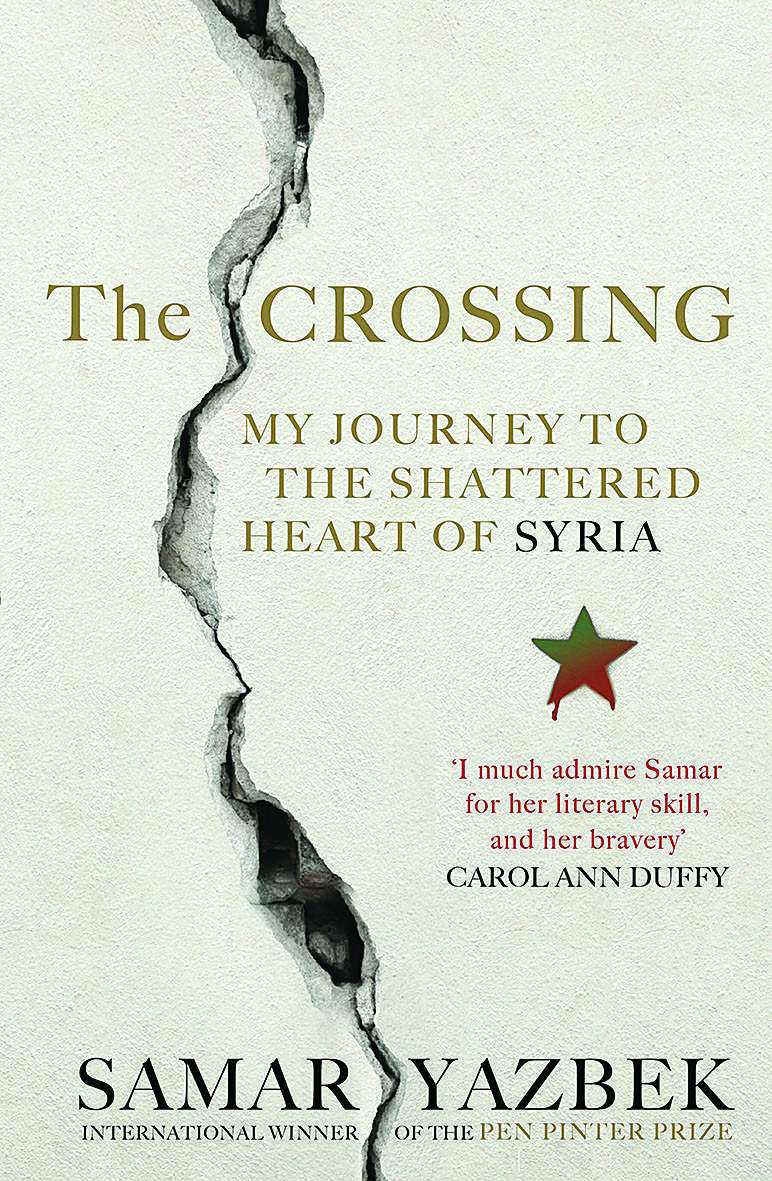Fragments of so-called life in Syria
SILAY SILDIR – Ankara
 “The Crossing” is neither fiction nor a memoir. It is a testimony of a Syrian journalist on the people left behind in Syria. Samar Yazbek documents the real people, living (or more accurately dying) under the current aerial bombardment.
“The Crossing” is neither fiction nor a memoir. It is a testimony of a Syrian journalist on the people left behind in Syria. Samar Yazbek documents the real people, living (or more accurately dying) under the current aerial bombardment. In her book, the PEN award winning journalist gives an account of what she has witnessed. From the 2011 protests demanding human rights to the formation of local militias by common people, “The Crossing” accounts for the gradual metamorphosis of the rebellion into a fragmented opposition dominated by extremists.
In her book, the PEN award winning journalist gives an account of what she has witnessed. From the 2011 protests demanding human rights to the formation of local militias by common people, “The Crossing” accounts for the gradual metamorphosis of the rebellion into a fragmented opposition dominated by extremists. “Before our homeland became a magnet attracting radical Islamists and paid soldiers, we had an honorable revolution,” says Yazbek, referring to the beginning of the protests she participated in as an activist. Her critical writings and activism against the autocracy of the Assad regime forced her into exile. She was arrested for five times, beaten and forced to watch young activists hanging upside down in the dungeons of the regime.
Yet, she believes writing is essential in this turmoil. Unless documented, she says, the truth will be forgotten because of the chaotic environment and manipulations of the media under the pressure of the intelligence service. That is why, starting from 2012, she sneaked back into her country multiple times to document sometimes even the front line.
She talks about the inability of a child to run, with her already shrapnel-blown arms and legs when planes start to drop barrel bombs. She also talks about a regime soldier, executed for disobeying a direct order and refusing to rape another child.
Her testimonials are heavy, as she answers our question “How is the daily life under current war conditions?” She points to the shrapnel-loaded barrel bombs of the regime once again as the biggest danger threatening the survival of innocent civilians today.
“Access to primary health care, water and gas requires a long journey on unsafe roads,” she says. In her own words, daily life is hell in Syria, both for children and adults. In areas under the control of the Islamic State of Iraq and the Levant (ISIL), Yazbek explains children are taken from their mothers suddenly in the daytime, to be armed under their so-called army. These children then become numbers in death tolls in air strike operations.
She has met elderly people who refuse to run and hide during aerial bombardment. “Hope for survival is lessening,” she tells us. “The number of civil organizations including Turkish volunteers actively working within Syrian borders is decreasing,” she reports. “Bettering the daily life for those we left behind becomes harder by this very fact.”
Yazbek says the primary reason is the expanding ISIL activity, with its morbid brutality and the interventions of other radical religious groups in civil society, while the regime’s bombs drop from the sky.
Indeed, the hegemonic wars of the international community in the region have replaced humanitarian solutions. Military solutions trampled the priority to protect. The United Nations held their meeting in New York last week. No deterrent decision was produced for Assad’s helicopter-dropped barrel bombs killing civilians indiscriminately. Besides, France started its first air strikes against ISIL militants in Syria, which means more bombs on already decaying towns. The civilian left behind in Syria seems to be nobody’s top priority. Russia appears to be more concerned about extremist Islamic formations with its air force backing up the regime. Europe’s biggest source of worry is most probably people marching to their borders. “We do not see measureable gains, the murderer ISIL is expanding and Assad’s tortures make things worse,” says Yazbek. “Where politics fail to accomplish its objective to produce a solution what can media or literature do?” we ask Yazbek.
Her answer is simple: “We should keep on writing and put civilian massacres on the agenda.” She believes literature constructs social memory and remembering the truth nourishes hope to reconstruct society.
“Syria’s major problem is that our demands of justice and freedom have been transformed into a refugee and donation problem,” says Yazbek. “This is a political decision and manipulation of the truth by international actors,” she explains.
Meanwhile, EU leaders gathered in Brussels. They announced a short-term action plan: the EU would offer at least 1 billion euros more to the U.N. refugee agency and others, to increase funding for Syrian refugees in Turkey, Jordan, Lebanon, etc. However, so far this year, the U.N. has received only 37 percent of its appeal for aid in Syria. The World Health Organization has only received 27 percent of needed funds for the devastated country. When it comes to those we left behind, neither side seems to have much regard for civilians under the crossfire.
“The Crossing” appeared on the bookshelves on July 2. The book aims to keep an eye on the people in Syria left to suffer alone in political maneuvers.
















